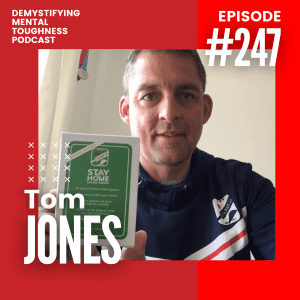28 July 2023

Helping You Gain A Mental Edge
5 Benefits of Team Building Exercises in Sports
How to create a team first mentality to improve results in sport.
A team first mentality, could also be described a team-oriented mindset or team-centric approach, and refers to the belief and practice of prioritising the collective goals of the team and its members ahead of personal ambitions and desires for the greater good of the group. Essentially, you are placing your ego to oneside!
Last week, I shared my thoughts on captains and how they could contribute in this way, the focus of this week’s mental edge is related to “team units.”
In a team-first mentality, individuals work collaboratively, communicate effectively, and support each other to achieve common objectives. The focus is on cooperation, synergy, and leveraging the unique strengths of each team member to achieve shared goals. This mindset is often seen in high-performing teams where members trust each other, are open to feedback, and are willing to adapt and compromise for the greater good of the team.
Breaking teams and squads down into units, and frequently changing the units whilst undergoing specific training can be a big help.
The very best, high performing teams do this very well. The attention detail within their managerial team is second to none. Naturally they’ll spend time driving technically, tactically and physically change. However, they will also see the added value the use of psychological skills and team cohesion interventions can have on the overall culture of the team, club or organisation.
In a rugby context, we aren’t just talking about creating a leadership group or simply splitting the team into forwards and backs. My experiences have shown me that small sub-groups will be created and changed frequently, with a purpose.
Fun and light-hearted activities, team communication, problem solving and trust building activities are features of this approach.
The results then often include:
1. A highly supportive environment
Where individuals are willing to assist their teammates when needed. They offer help and encouragement, they recognise the success of one member contributes to the success of the whole team. Again, ego’s aren’t evident.
2. Accountable individuals
Each team member goes on to take responsibility for their actions and their impact on the team. They hold themselves accountable for their commitments and strive to deliver on their promises.
3. A collaborative culture
Team-mates work together, pooling their skills and knowledge, to achieve shared goals. They actively seek input from others and value different ideas and perspectives.
4. Open communication
Open and effective communication is essential for a team-first mentality. Team members listen actively, express their ideas constructively, and address conflicts in a respectful manner.
5. Recognising contributors
The team acknowledges and celebrates the achievements and contributions of all its players, fostering a positive and motivating environment.
For further thoughts on creating a team-first culture, so that results improve as well as a sense of unity and camaraderie among team-mates you may wish to check out the most recent episode of Demystifying Mental Toughness.

THE LATEST DEMYSTIFYING MENTAL TOUGHNESS PODCAST!
When difficulties arise in team sports, ideally, you’d like players to pull together towards collective goals. You’d hope communication would be solution orientated not blame or problem orientated.
In today’s episode of Demystifying Mental Toughness, I share some suggestions on how this can be achieved with the use or working more closely in team-units, not only from a technical, tactical or physical perspective but from a psycho-social angle too.
Enjoy tuning in!
VALUABLE PODCASTS TO HELP TEAM UNITY
Ep111: Michael Caulfield – How to be an Effective Sports Psychologist in Elite Professional Football
EP147: Aaron Walsh – The Application of Mental Performance Coaching in Elite Professional Rugby
Ep161: Paul Phillips – How to Create a Culture of High Performance in Professional Rugby Union
Ep166: Mark Bennett MBE – How To Help Athletes and Coaches Reflect On Their Performances
RELEVANT BLOGS TO BENEFIT TEAMS INCLUDE
Blog – Why You Should Recognise The Power of Your Words
Blog – Make Better Decisions to Help Your Sport Performance
Blog – 5 Ways to Create a Psychological Safe Sporting Environment
Blog – How Mentally Healthy is Your Club’s Sporting Environment?
Blog – Mental Health Guidance For Coaches When Supporting Athletes
3 SPORT SPECIFIC RESOURCES FROM OUR SPORTS PSYCHOLOGY LIBRARY TO HELP YOU
3 WAYS TO LEARN MORE ABOUT OUR WORK:

Best Wishes
David Charlton
Online Sports Psychologist | Mental Performance Coach who supports many highly motivated athletes, young and old, developing their skills or who are already highly skilled so that they gain a mental edge and get the most from their talent across the globe from USA/Canada to Great Britain and Ireland to UAE, South Africa, Australia and New Zealand, using ONLINE Video Conferencing.
Managing Director – Inspiring Sporting Excellence
Host of Demystifying Mental Toughness Podcast
Founder of The Sports Psychology Hub
Author of The Mental Edge
With over a decades’ experience supporting athletes, coaches, parents and teams to transfer their skills from training to competitive situations, under pressure.
T: +44 7734 697769







